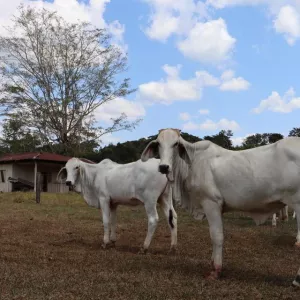The Kaleidoscope of Change: consolidating the sustainable cattle policy in Colombia
Climate change and deforestation are leaving an clear mark on our planet, and cattle is not exempt from this reality. Responsible for a significant percentage of greenhouse gas emissions and biodiversity loss, cattle farming faces a crossroads: to change, or to risk irreversibly damaging our environment. In Colombia, a new approach to cattle farming is taking shape. The ‘Policy for

The Kaleidoscope of Change: consolidating the sustainable cattle policy in Colombia
Climate change and deforestation are leaving an clear mark on our planet, and cattle is not exempt from this reality. Responsible for a significant percentage of greenhouse gas emissions and biodiversity loss, cattle farming faces a crossroads: to change, or to risk irreversibly damaging our environment.
In Colombia, a new approach to cattle farming is taking shape. The ‘Policy for Sustainable Cattle (PSC) 2022–2050’ is a beacon of hope in the face of huge environmental concerns. With global temperatures on the rise and cattle farming as a co-driver of deforestation, the need for sustainable policies is more urgent than ever. This policy, designed to promote the transition from mainstream cattle farming to sustainable production systems and value chains, is a milestone on the path toward a greener and more prosperous future for Colombia.
However, there are basic questions whose answers could pave the way for new and more effective sustainability policies: How did this policy emerge in the national landscape? Who were the drivers of this initiative? And, most importantly, what challenges were faced during the consolidation process? With these questions in mind, the Alliance’s Tropical Forages Program published a study titled ‘A kaleidoscope model analysis of the policy for sustainable cattle 2022-2050‘, recently published in the prestigious journal Cleaner and Circular Bioeconomy, aiming to unravel the step-by-step process of consolidating this national policy. To do this, we conducted interviews with national stakeholders in the cattle sector.
To analyze the policy in detail, published under Resolution 126 of 2022 by the Colombian Ministry of Agriculture and Rural Development (MADR), the Kaleidoscope Model for Policy Change (KMPC) developed by Resnick et al. was applied. In this model, multiple pieces come together to form constantly changing and evolving patterns. The consolidation of sustainability policies is the result of dynamic interaction among various actors, common interests, and processes. Just as a triangular prism reveals a variety of colors and shapes when turned, our analysis unraveled the multiple dimensions and perspectives that shape the process of political change toward sustainability in the Colombian cattle sector. Our main findings were:
The creation of the PSC was not a trivial process. It was the result of years of research, discussions, and commitments among diverse public and private actors. From acknowledging the problem to identifying solutions, each stage of the process was marked by collaboration and commitment to a more sustainable future.

